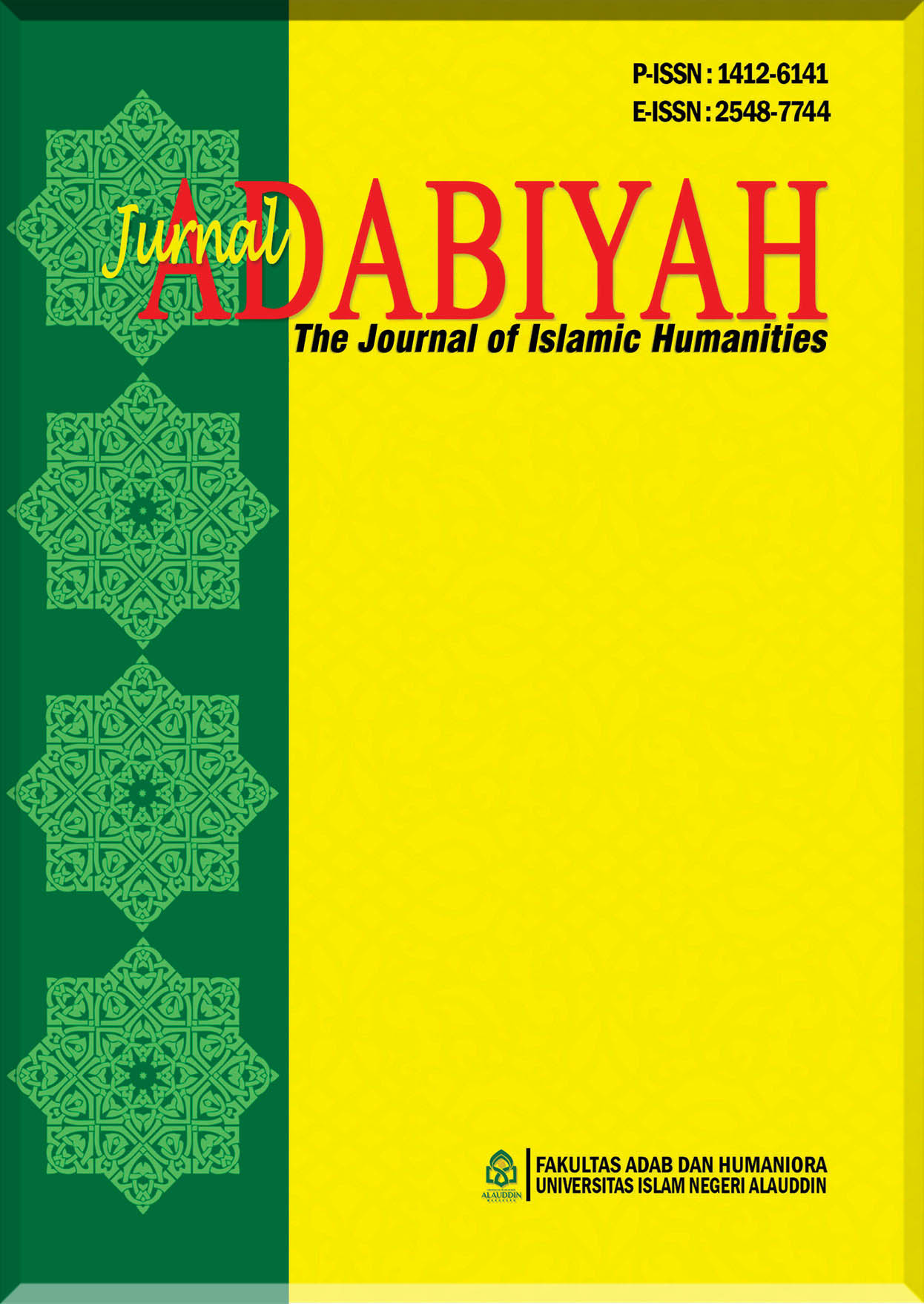Sejarah Masuk dan Perkembangan Ahmadiyah di Sulawesi Selatan
Main Article Content
Abstract
Downloads
Article Details
COPYRIGHT AND LICENSE STATEMENT
COPYRIGHT
Jurnal Adabiyah is published under the terms of the Creative Commons Attribution license. Authors hold the copyright and retain publishing rights without restriction to their work. Users may read, download, copy, distribute, and print the work in any medium, provided the original work is properly cited.
LICENSE TO PUBLISH
1. License
The use of the article will be governed by the Creative Commons Attribution license as currently displayed on http://creativecommons.org/licenses/by/4.0.
2. Author’s Warranties
The author warrants that the article is original, written by stated author/s, has not been published before, contains no unlawful statements, does not infringe the rights of others, is subject to copyright that is vested exclusively in the author and free of any third party rights, and that any necessary written permissions to quote from other sources have been obtained by the author(s).
3. User Rights
Under the Creative Commons Attribution license, the users are free to download, reuse, reprint, modify, distribute and/or copy the content for any purpose, even commercially, as long as the original authors and source are cited. No permission is required from the authors or the publishers.
4. Co-Authorship
If the article was prepared jointly with other authors, the corresponding author warrants that he/she has been authorized by all co-authors, and agrees to inform his/her co-authors of the terms of this statement.
5. Miscellaneous
Jurnal Adabiyah may conform the article to a style of punctuation, spelling, capitalization, and usage that it deems appropriate. The author acknowledges that the article may be published so that it will be publicly accessible and such access will be free of charge for the readers.
References
Ahmad, Nasir, Mahzarnama (Jakarta: Yayasan Wisma Damai, 2002)
Abu Zahrah, Muhammad, Tarikh Al-Muzahib al-Islamiyah (Mesir: Dar Al-Fikr, 1991).
Al-Abyari, Ibrahim, Kitab Tarikh al-Quran, diterjemahkan oleh St. Amanah dengan judul, Sejarah al-Quran (Semarang: Dina Utama, 1993).
Al-Adabi, Salah al-Din, Manha Naqd al-Matn (Beirut: Dar al-Ataq al-Jadidah, 1983).
Ali , Ameer, Spirit of Islam, diterjemahkan oleh Djamdi dengan judul, Api Islam (Jakarta: PT. Pembangunan, 1966).

